C_pointer_arithmetic In the memory, p_fifth is after p_i Pointers and arrays We can work with the 100int memory block we declared above using pointer arithmetic It shouldn't be a problem for us to fill the array with numbers, eg with zeros (Although we got some memory from malloc(), we can never be sure what is stored in it) Pointer arithmetic is slightly different from arithmetic we normally use in our daily life The only valid arithmetic operations applicable on pointers are Addition of integer to a pointer;Subtracting two pointers of the same type;

C Language In Hindi Pointer Arithmetic Hindi Tutorials Point
C pointer arithmetic for 2d arrays
C pointer arithmetic for 2d arrays- Pointer arithmetic The C language allows you to perform integer addition or subtraction operations on pointers If ptr points to an integer, ptr 1 is the address of the next integer in memory after ptr ptr 1 is the address of the previous integer before ptrPointer variables can also be used in arithmetic expressions The following operations can be carried out on pointers 1Pointers can be incremented or decremented to point to different locations like ptr1 = ptr2 3;



1
C Pointer Arithmetic In C, arithmetic operations on pointer variable is similar to a numeric value As we know that, a pointer in C is a variable used to store the memory address which is a numeric value The arithmetic operations on pointer variable changes the memory address pointed by pointer Not all arithmetic operations are valid05 Pointer Arithmetic Part 2 06 Pointer In Function Parameter 07 Dynamic Memory Allocation 08 Function Pointers 4/8 Pointer Arithmetic Part 1 Previous Pointer And Array Next Pointer Arithmetic Part 2 Given an array arrARRAY_SIZE we can get the address of the ith element by arr i as arr works as a pointer to the first element of theOnce we have a pointer pointing into an array, we can start doing pointer arithmetic Given that ip is a pointer to a3, we can add 1 to ip ip 1 What does it mean to add one to a pointer?
In C, it gives a pointer to the cell one farther on, which in this case is a4 To make this clear, let's assign this new pointer to another pointer warning C Don't use pointer arithmetic Use span instead (bounds1) Remarks This check supports the C Core Guidelines rule I13 Do not pass an array as a single pointer Whenever raw pointers are used in arithmetic operations they should be replaced with safer kinds of buffers, such as span or vectorC Pointer Arithmetic Pointer Arithmetic in C C pointers can be defined as a variable, pointing towards the address of a value C also facilitates Arithmetic operations with Pointers
Pointers Arithmetic Operations in C Pointer variables are used to store the address of variables Address of any variable is an unsigned integer value ie, it is a numerical value So we can perform arithmetic operations on pointer values But when we perform arithmetic operations on pointer variable, the result depends on the amount ofA pointer in c is an address, which is a numeric value Therefore, you can perform arithmetic operations on a pointer just as you can on a numeric value There are four arithmetic operators that can be used on pointers , , , and To understand pointer arithmetic, let us consider that ptr is an integer pointer which points to the address 1000C allows few arithmetic operations on a pointer which are slightly different from regular mathematical operations It supports four arithmetic operators on a pointer which are , , , Increment/Decrement of a Pointer Increment When a pointer is incremented, it starts pointing to the immediate next location This is somewhat different from regular mathematical operations since the value of the pointer




Chapter 7 C Pointers Prezentaciya Onlajn



Homepage Of Dr Zoltan Porkolab
Pointer Arithmetic on Arrays Pointers contain addresses Adding two addresses makes no sense because there is no idea what it would point to Subtracting two addresses lets you compute the offset between the two addresses An array name acts like a pointer constant The value of this pointer constant is the address of the first elementPointer Arithmetic in C Programming We can perform arithmetic operations on pointer variable just as you can a numeric value As we know that, a pointer in C is a variable which is used to store the memory address which is a numeric value The arithmetic operations on pointer variable effects the memory address pointed by pointer "pointer arithmetic C" Code Answer pointer arithmetic C whatever by Lorenzo on Donate 0 Source wwwtutorialspointcom pointer arithmetic C c by Lorenzo on Donate 0 Source wwwtutorialspointcom pointer arithmetic C whatever by Lorenzo on Donate 0 Source wwwtutorialspoint




Pointer Arithmetic Pointer Computer Programming Data Type
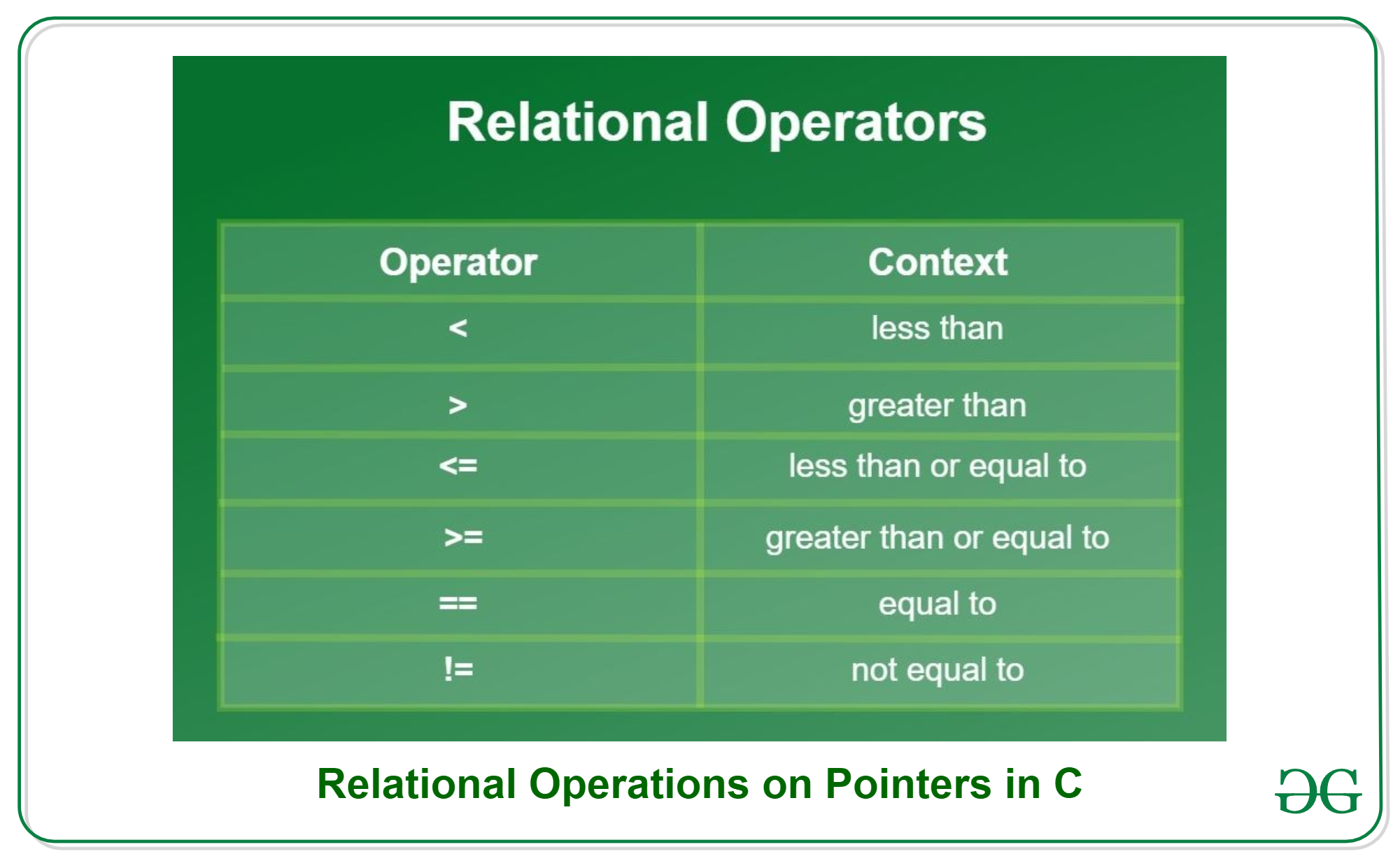



Pointer Expressions In C With Examples Geeksforgeeks
C Pointer Arithmetic This can be used to perform arithmetic operations on pointers And there are totally four arithmetic operators present in C are , – , and The increment operator () will increment the value of the pointer according to the pointer's type While the address will be incremented by the size of the pointer's The most common use of explicit pointer arithmetic in C is to increment a pointer while processing an array of data in a loop for (T* p = arr;In this tutorial you will be learning the arithmetic operations on pointers There are multiple arithmetic operations that can be applied on C pointers , , , Incrementing a Pointer with () Just like any variable the operation increases the value of that variable In our case here the variable is a pointer hence when we increase its




Pointers In C Language A Brief Description Aticleworld




Pointer Arithmetic Developer Help
Pointer Expressions and Pointer Arithmetic A limited set of arithmetic operations can be performed on pointers A pointer may be incremented ( ) decremented ( — ) an integer may be added to a pointer ( or = ) an integer may be subtracted from a pointer ( – or = ) Pointer arithmetic is meaningless unless performed on an arrayC pointer arithmetic cpp by GrepperFoo69 on Donate 0 Source wwwtutorialspointcom pointer arithmetic C c by DevLorenzo on Donate 0 Source wwwtutorialspointcom Add a Grepper Answer C answers related to "C pointer arithmetic2 days ago Pointers and Arrays in C Pointer Arithmetic in C C Tutorial PART 36About this channel Hello friends, this is Prasad and welcome to my
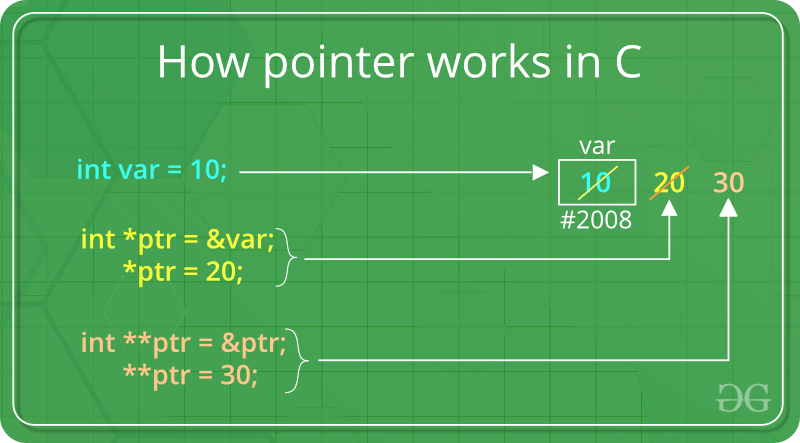



Pointers In C And C Set 1 Introduction Arithmetic And Array Geeksforgeeks




Pointer Arithmetic In C Programming Aticleworld
Note The C standard does not allow the arithmetic operation on void pointers but GNU C allows with assuming the size of the void is 1 To know about the void pointer See this Link Use of void pointer in C language Indirection and Increment/Decrement operators with a pointer pointer arithmetic in C We can perform two arithmetic operation on pointers These are addition and subtraction operations A pointer arithmetic in C may be incremented or decremented It means that we can add or subtract integer value to and from the pointer Similarly, a pointer arithmetic can be subtracted( or added) from anotherPointer Arithmetic in C Fourth Line Ex1 The fifth line of code q = p – 5 will have an output of 106 based on the formula of pointer arithmetic Now q will point to the fourth element of the array, as shown in the image below Pointer Arithmetic in C Fifth Line Ex1 Similarly, the sixth line of code p = p 6 will have an output of 104




Pointer Arithmetic Developer Help




Pointer Arithmetic In Pointers
We debug the line that causes the heap overflow And it's a great opportunity to understand pointers in CThe full playlist https//wwwyoutubecom/playlist In C pointer holds address of a value, so there can be arithmetic operations on the pointer variable Following arithmetic operations are possible on pointer in C language Pointer arithmetic in c may be incremented or decremented It means that we can add or subtract integer value to and from the pointer Similarly, pointer arithmetic can be subtracted (or added) from another The addition and subtraction operation on pointers are different than that of ordinary arithmetic operations



1
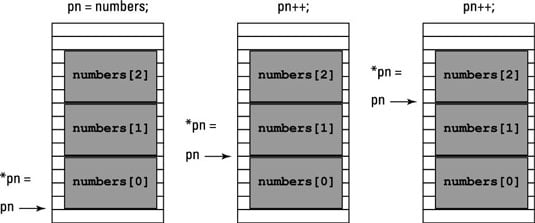



C Programming How To Work Pointer Math In An Array Dummies
There are four arithmetic operators that can be used on pointers , , , and To understand pointer arithmetic, let us consider that ptr is an integer pointer which points to the address 1000 Assuming 32bit integers, let us perform the following arithmetic operation on the pointer −P) { *p = foo (*p);If you want to have complete knowledge of pointers, pointer arithmetic is very important to understandIn this topic we will study how the memory addresses change when you increment a pointer 16 bit Machine (Turbo C) In a 16 bit machine, size of all types of pointer, be it int*, float*, char* or double* is always 2 bytesBut when we perform any arithmetic function like increment on a pointer




Word Pointer Computer Programming 64 Bit Computing




Pointer Based Instrumentation With Disjoint Metadata A Memory Download Scientific Diagram
24 C – Pointer Arithmetic and Comparision A pointer in c is an address, which is a numeric value Therefore, you can perform arithmetic operations on a pointer just as you can on a numeric value There are four arithmetic operators that can be used on pointers , –, , and – To understand pointer arithmetic, let us consider that ptrA pointer in c is an address, which is a numeric value Therefore, you can perform arithmetic operations on a pointer just as you can on a numeric value There are four arithmetic operators that can be used on pointers , , , and To understand pointer arithmetic, let us consider that ptr is an integer pointer which points to the addressC allows few arithmetic operations on a pointer which are slightly different from regular mathematical operations It supports four arithmetic operators on a pointer which are , , , Increment/Decrement of a Pointer Increment When a pointer is incremented, it starts pointing to the immediate next location This is somewhat different from regular mathematical operations since the value of the pointer




Learn Pointer Arithmetic In C Programming Language Youtube




Pointer Arithmetic Of An Array And Passing A 2d Array To A Function
C Pointer Arithmetic C Pointer holds the address of a value That's why we can perform some arithmetic operations on the pointer variable Here is the list of commonly used C Pointer Arithmetic C Pointers 1 Pointers in C Omar Mukhtar 2 Outline Review of concepts in previous lectures Introduction to pointers Pointers as function arguments Pointers and arrays Pointer arithmetic Pointertopointer 3Pointer Arithmetic As we Understood Pointer is an Address which is a Numeric value, therefore, we can perform Arithmetic Operation on a pointer just as we can a Numeric value There are Only four Arithmetic Operators » Increment Operator ( ) » Decrements Operator ( ) » Addition ( ) » Subtraction ( )
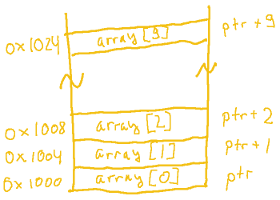



When 4 1 Equals 8 An Advanced Take On Pointers In C Hackaday
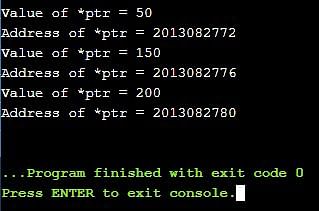



One Stop Solution For Using C Pointers Fuentitech
} The expression arr numElements is a classic C pointer to onepastthelastelement of the array In C programming using the Standard Template LibraryHence, arithmetic operation can be done on a pointer There are four operations that can be done on a pointer Those are 1 Increment () and Decrement ( ) 2 Addition of any integer to pointer () 3 Subtraction of any integer from pointer () 4 Subtracting two pointers of same datatype ()P != arr numElements;




Pointer Arithmetic In C A Quick Glance Of Pointer Arithmetic In C




Pointer Arithmetic In C Language C Programming Youtube
Subtraction of integer to a pointer;The pointer arithmetic is performed relative to the base type of the pointer Because of this, the C standard does not just define pointers as addresses and let you do arithmetic on the addresses Only a reasonable amount of pointer arithmetic is defined, and the C implementation is required to provide the necessary operations to make that arithmetic work, but no more Even on modern machines, there can be complications
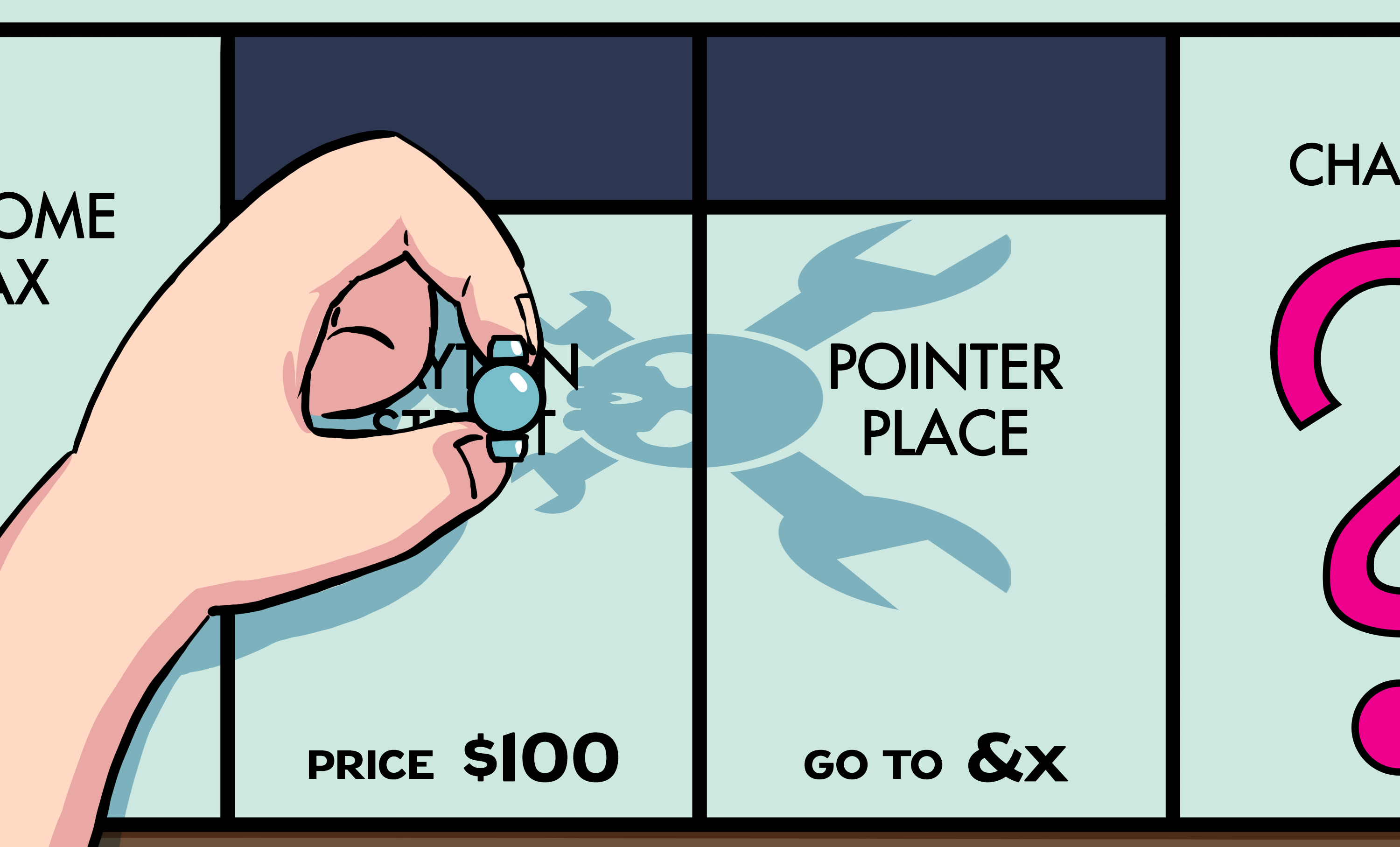



When 4 1 Equals 8 An Advanced Take On Pointers In C Hackaday




Pointer Arithmetic
However, ptr will cause the pointer ptr to point the next address value of its typeA pointer in C is an address, which is a numeric value So you can perform arithmetic operations like addition, subtraction, etc on a pointer just as you can C Pointers C C Programming Language Introduction History of C Language Features of C Language




Itp C Programming Lecture 5 Pointers In C Pointer Arithmetic Pointers And Arrays Hindi Youtube
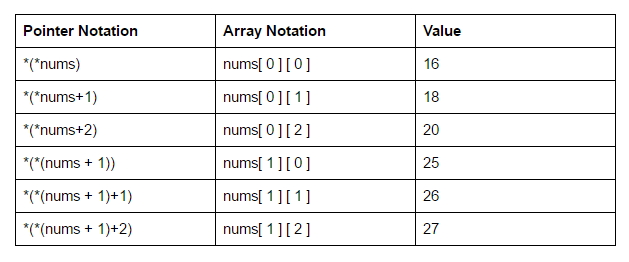



Pointers In C C With Examples Geeksforgeeks




Pointer Arithmetic Pointer Size And Pointer Type In C And C




Pointers Revision Overview Revision Of Pointers And Structs




C Language In Hindi Pointer Arithmetic Hindi Tutorials Point




Pointers Topics Pointer Arithmetic Pointers And Arrays Objectives



1




Warning Pointer To A Function Used In Arithmetic Programmer Sought
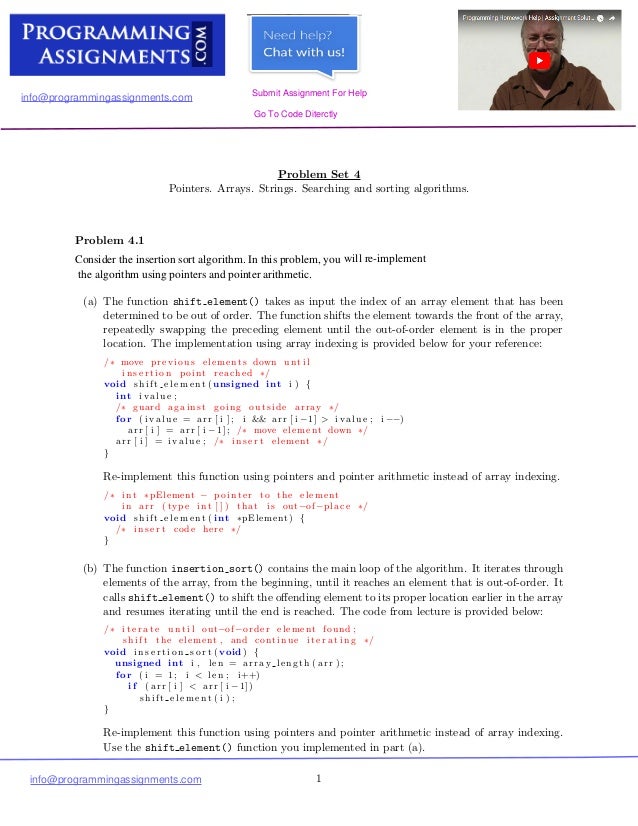



C Programming Assignment Sample Help




Pointer Arithmetic In C Hindi Youtube




Pointer Types Pointer Arithmetic Void Pointers Youtube
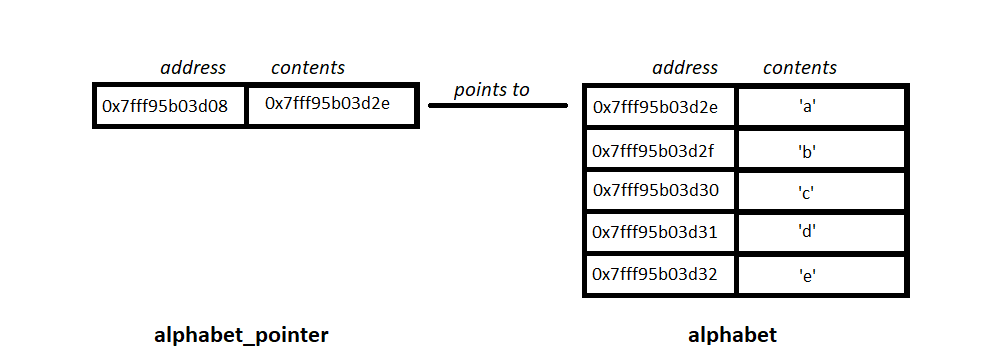



A Gentle Introduction To Pointers Using The C Programming Language




1 Some Pointer Arithmetic Is Allowed Which Of The Chegg Com



Pointer Arithmetic In C With Programming Examples




Understand Pointer Arithmetic In C In Easy Way 3 Itvoyagers




Output Of Pointer Arithmetic Binaryupdates Embedded Systems Training
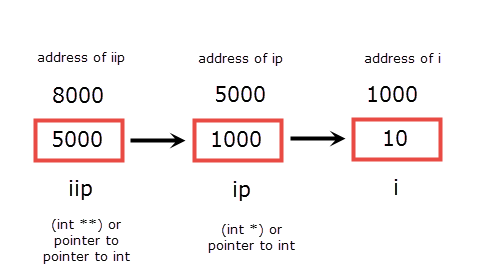



Pointer Arithmetic In C C Programming Tutorial Overiq Com




Pointer Arithmetic Pointer Computer Programming Data Type
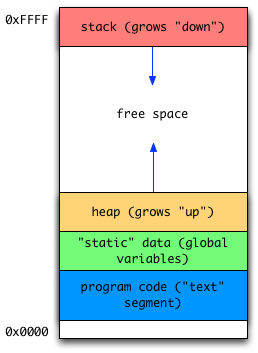



8 Pointers And More Arrays The Book Of C Version 18 01




Pointers In C Powerpoint Slides




Pointer Arithmetic In C With Detailed Explanation Learnprogramo




Pointer Arithmetic In C A Quick Glance Of Pointer Arithmetic In C



The Little Book Of Pointers




A Example Of A Loop Using Pointer Arithmetic B Loop Containing Memory Download Scientific Diagram




Pointer Arithmetic Developer Help
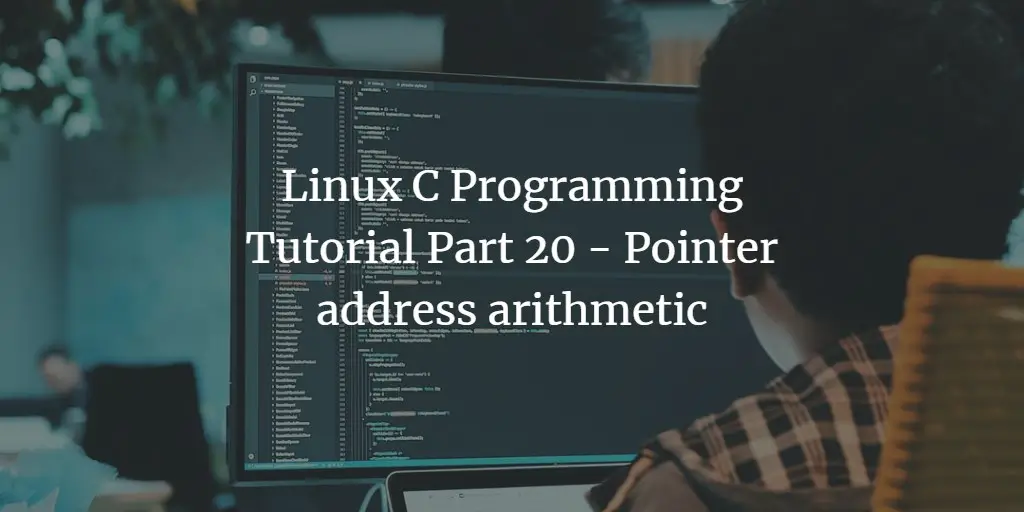



Linux C Programming Tutorial Part Pointer Address Arithmetic




Tips On Pointers And Arrays In C A Hub Of Computer Science Notes




C Pointer Arithmetic
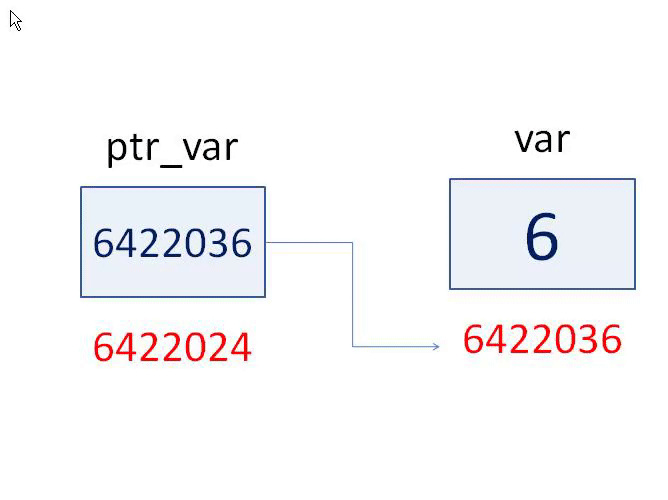



Pointers In C Explained They Re Not As Difficult As You Think




Pointer Arithmetic Addition Youtube



Pointer Expressions And Arithmetic Atnyla




Pointer Arithmetic In C Programming Aticleworld
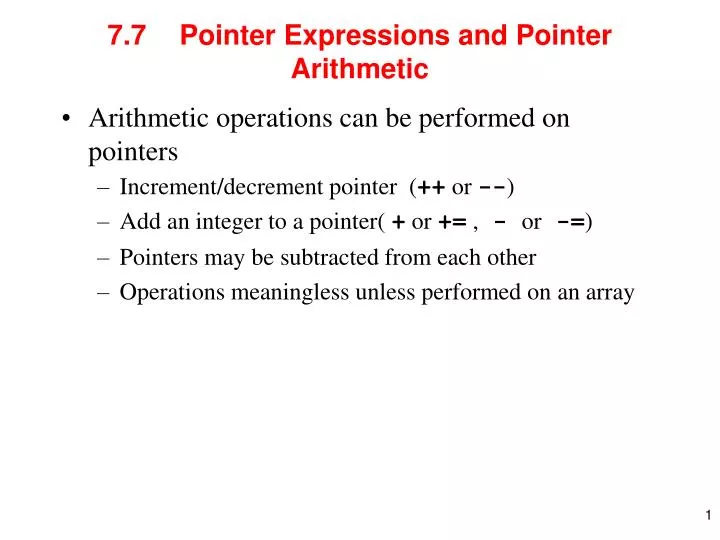



Ppt 7 7 Pointer Expressions And Pointer Arithmetic Powerpoint Presentation Id
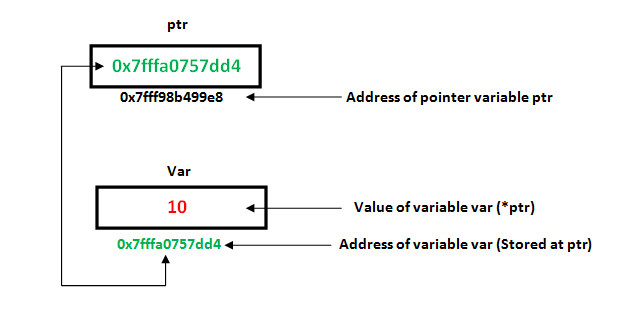



Pointers In C C With Examples Geeksforgeeks




Cs 11 C Track Lecture 5 Last Week Pointers This Week Pointer Arithmetic Arrays And Pointers Dynamic Memory Allocation The Stack And The Heap Ppt Download




Pointer Arithmetic In C Programming Language Vps And Vpn
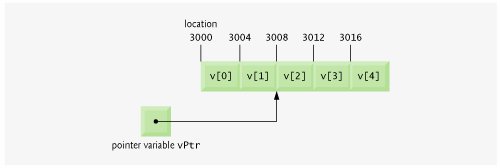



Pointer Expressions And Pointer Arithmetic Pointers And Pointer Based Strings



Pointer Arithmetic Hauv C Programming




1 7 7pointer Expressions And Pointer Arithmetic Arithmetic Operations Can Be Performed On Pointers Increment Decrement Pointer Or Add An Integer Ppt Download




One Stop Solution For Using C Pointers Fuentitech




37 C Pointer Arithmetic Cs51 Programming In C Tamil Vps And Vpn
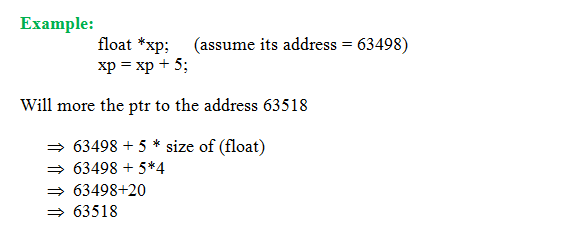



Easy To Learn Pointer Arithmetic In C Language




Pointer Arithmetic In C In Urdu Hindi Youtube
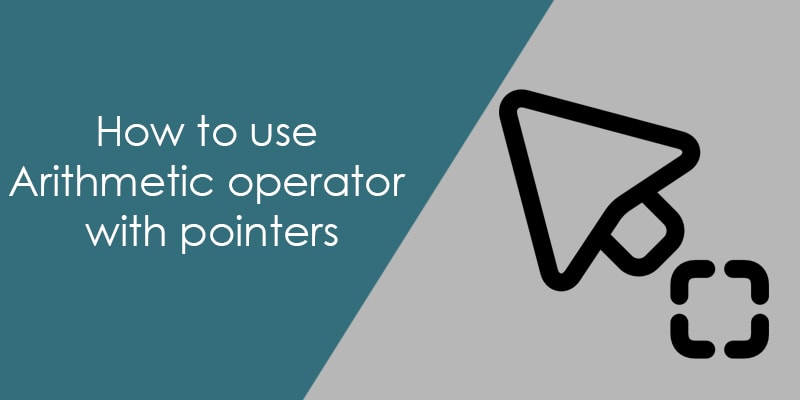



Pointer Arithmetic In C Programming Aticleworld
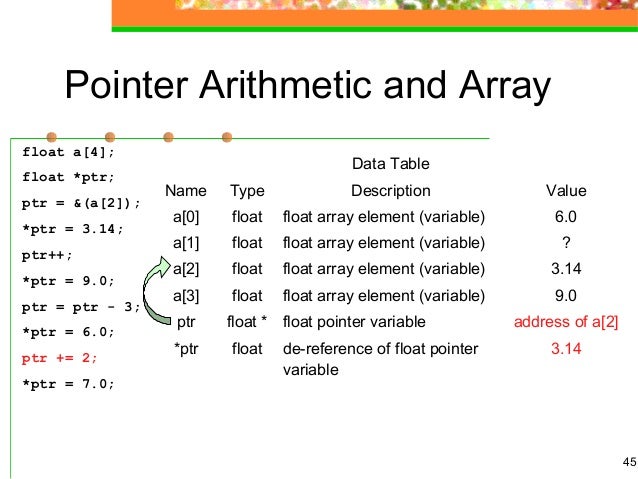



Detailed Information About Pointers In C Language



Pointer Types Pointer Arithmetic Void Pointers Video Dailymotion




Pointers In C Programming What Is Pointer Types Examples
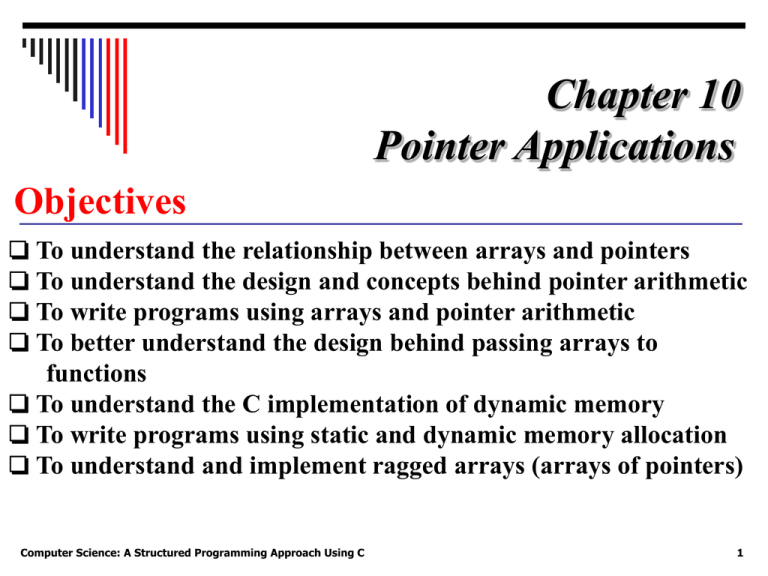



Chap 10 1 Ppt



C Pointer Arithmetic Introduction Hacking C




Pointer Arithmetic Pointer Addition And Comparision cfalna Com




Arrays In C With A Brief Introduction To




Shock Horror I Learned Something About Arrays In C Sticky Bits Powered By Feabhassticky Bits Powered By Feabhas



Pointer Computer Programming Wikipedia
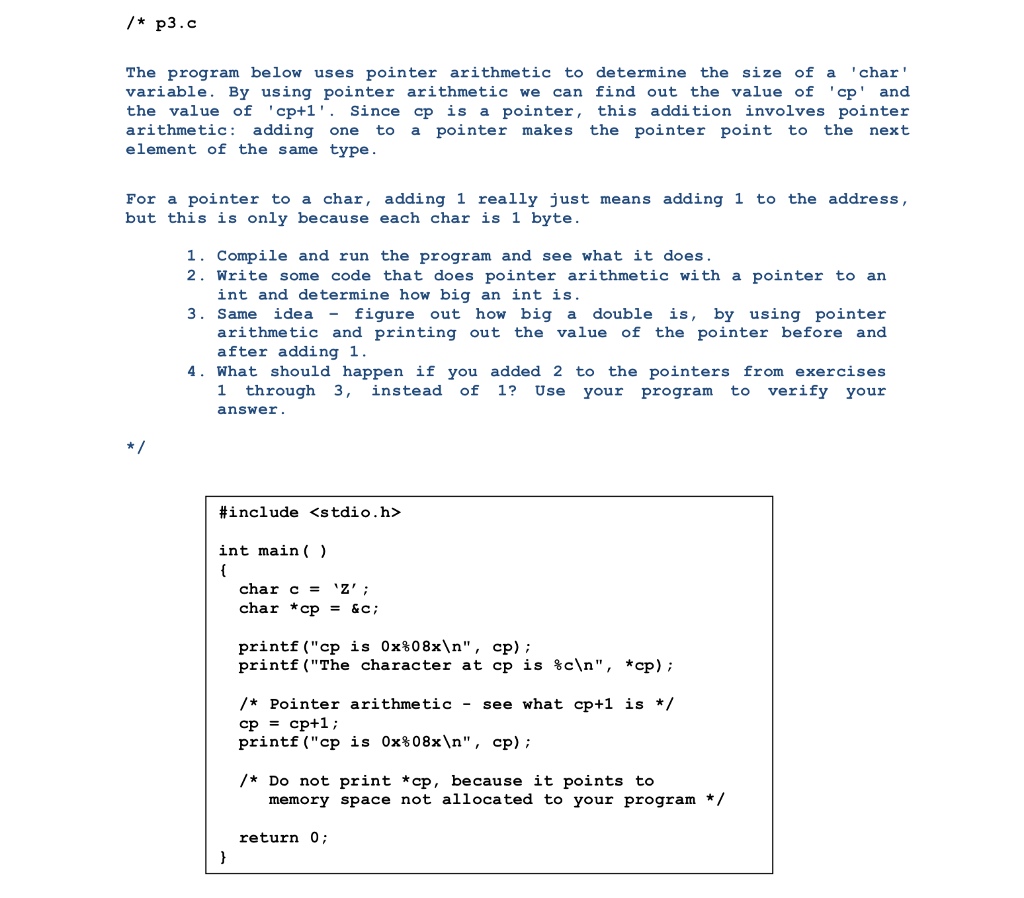



The Program Below Uses Pointer Arithmetic To Chegg Com



1




Pointer Arithmetic In C With Programming Examples
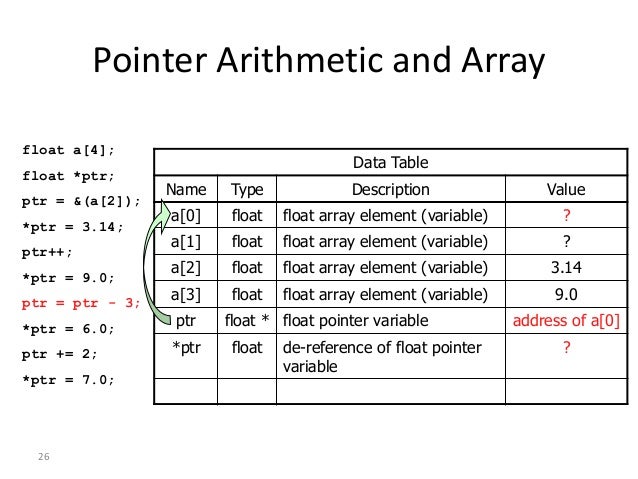



Pointers In C
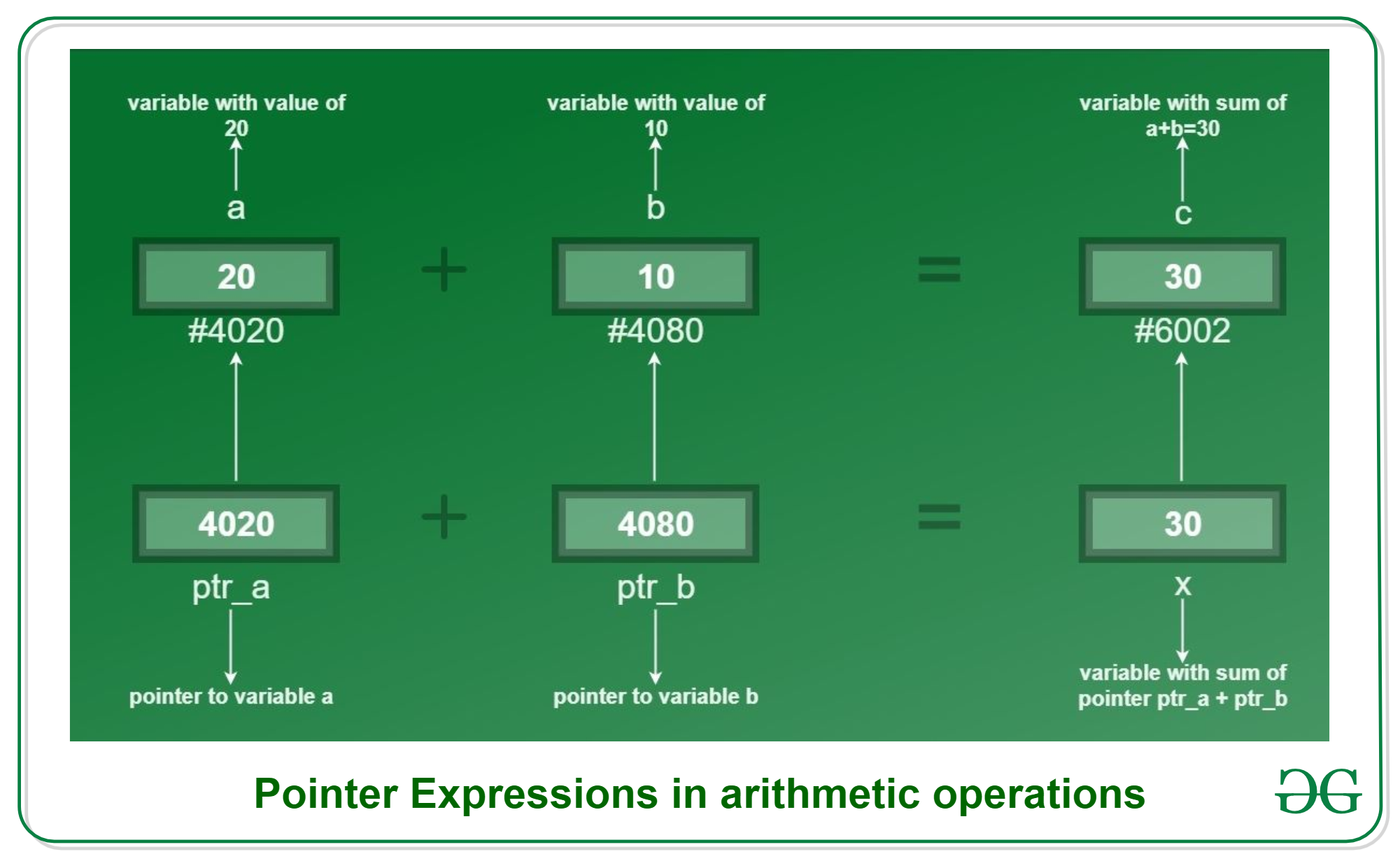



Pointer Expressions In C With Examples Geeksforgeeks




C Pointers 101 Part 3 Pointer Arithmetic Dev Community




Pointer Arithmetic Addition Subtraction And Comparision




Pointer Arithmetic Comparing The Pointers Youtube
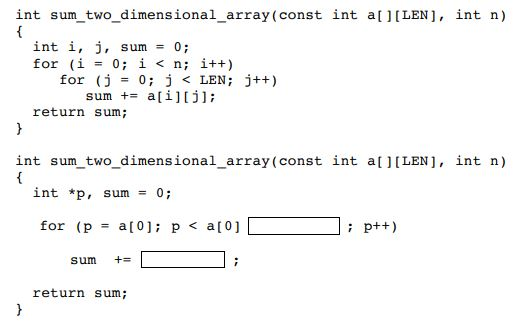



C Programming Rewrite The Following Function To Use Chegg Com



Pointer Expressions And Arithmetic Atnyla




Problems With Pointer Arithmetic C Youtube
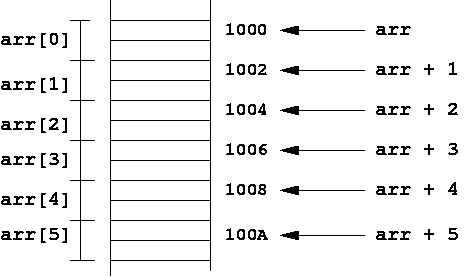



Pointer Arithmetic




C Programming Tutorial 15 Arrays And Pointers Pointer Arithmetic Youtube




7 7 Pointer Expressions And Pointer Arithmetic Arithmetic




Demystifying Pointers In C And C
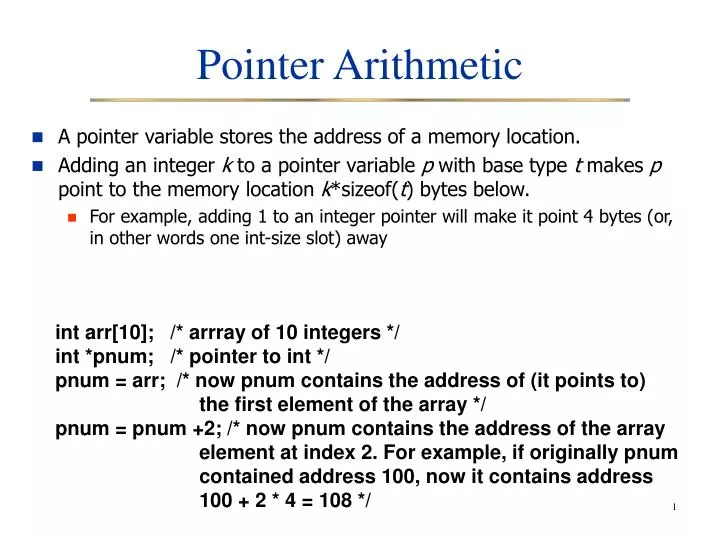



Ppt Pointer Arithmetic Powerpoint Presentation Free Download Id




Pointers In C Pointer Basics Pointer Arithmetic Pointer To Arrays And Pointer In Functions Ppt Download
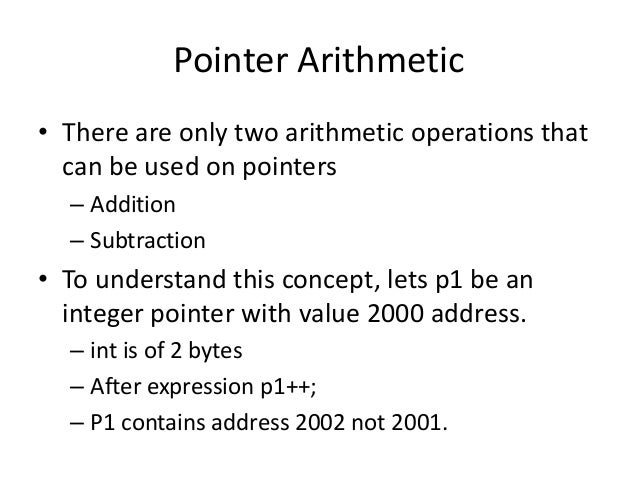



Pointers In C Programming
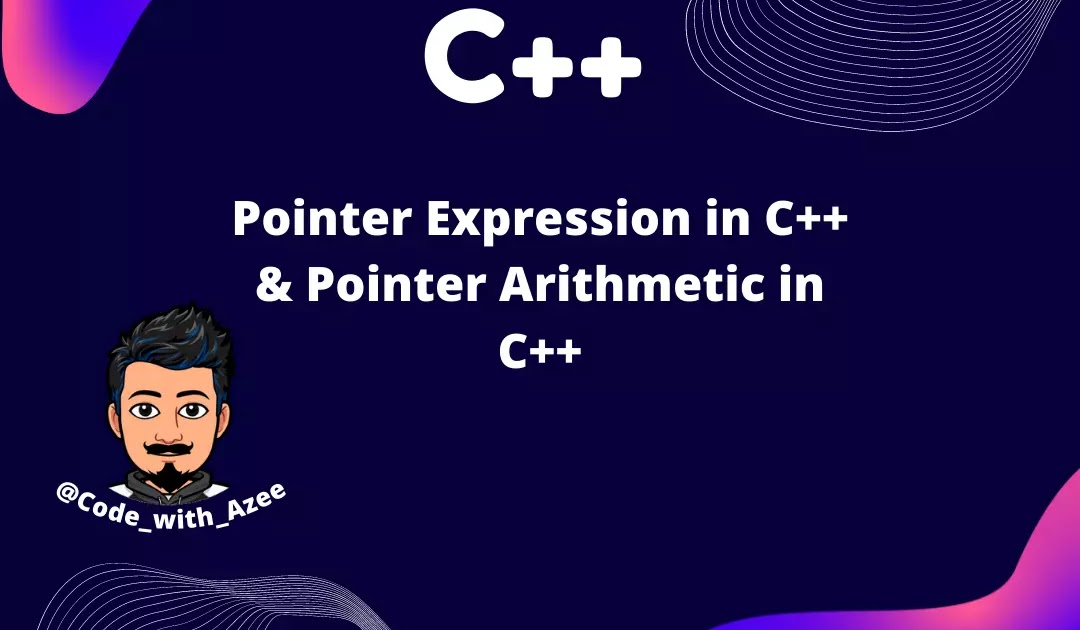



Pointer Expression In C Pointer Arithmetic In C Code With Azee Code With Azee



1




Pointer Arithmetic P P P Youtube




Pointer Arithmetic Developer Help



C Pointer Arithmetic Introduction Hacking C




Pointer Arithmetic In C With Detailed Explanation Learnprogramo




Csc 215 Pointers And Arrays Pointers C Provides Two Unary Operators And For Manipulating Data Using Pointers The Operator When Applied To A Ppt Download




Solved Alt Homework 3 1 Some Pointer Arithmetic Is Allow Chegg Com




Pointer Arithmetic
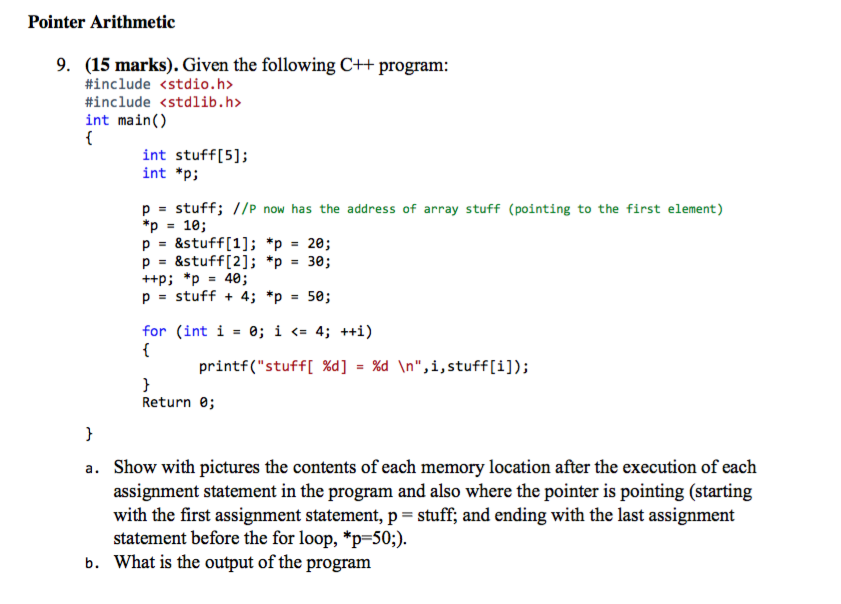



Pointer Arithmetic 9 15 Marks Given The Following Chegg Com




Pointer Arithmetic Developer Help



0 件のコメント:
コメントを投稿